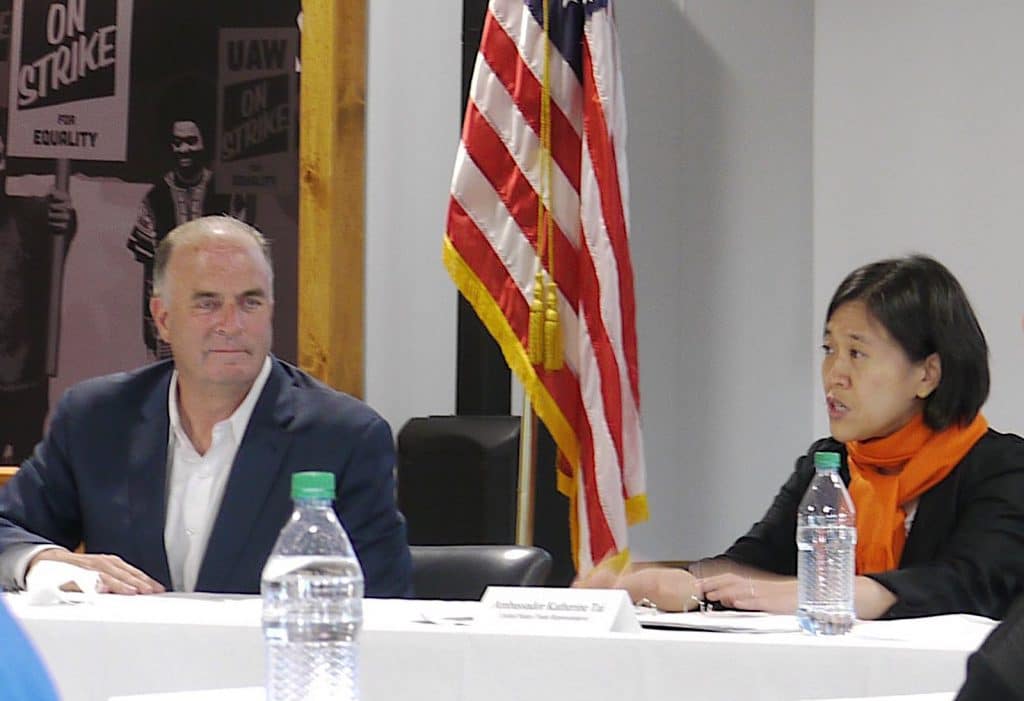The Mexican Secretariat of Labor and Welfare this week gave General Motors and the CTM union until Aug. 20 to hold a new vote ratify of the collective labor agreement at key GM assembly plant.

Contract votes at the plant have been contentious throughout the years. The previous election back in April was suspended due to irregularities and tampering by CTM, which was facing a challenge to its role as the labor organization representing more than 6,000 workers at a key GM plant in Mexico.
In a press release, translated from Spanish, the labor agency, also known as the STPS, said that “the STPS determined that the consultation must be reinstated no later than Aug. 20, 2021, in conditions of safety and accessibility so that workers can vote in a personal, free, direct and secret manner, without coercion or intimidation of any kind.”
In the same way, he reminded the trade union that, in the event of non-compliance with this process, the collective agreement will be terminated, while retaining for the benefit of the workers the benefits and working conditions recognized therein.
A history of issues
The original vote was held April 20 and 21 at the automotive plant in Silao, Guanajuato. However, the results were annulled “after serious irregularities that affected the development of the consultation, and the results of the vote were accredited.” It is worth noting the STPS held talks with the union to comply with the legitimization of the contract that protects more than 6,000 workers.
From there, came the agreement that was given “derived from the request of the Union itself to extend the deadline to replace the consultation, product of operational and technical impediments that make it difficult for the majority of workers to participate in the vote.”

The labor dispute in Silao has drawn the attention of the Biden administration, which is using provisions of the new U.S. Mexico and Canada trade agreement, or NAFTA 2.0, to push for a more open union elections in Mexico in the hopes they will lead to higher wage for Mexican workers. Tougher labor standards, which are backed by unions in Mexico and Canada, will help prevent American companies from moving factories into Mexico in search of lower labor costs, the unions contend.
Trade agency getting involved
Katherine Tai, the U.S. Trade Representative, traveled to Flint, Michigan earlier this week to participate in a roundtable discussion with members of the United Auto Workers to discuss trade issues at the invitation of Rep. Dan Kildee (D-Michigan).
During the meeting, Tai said the Biden administration planned to take a tough line on the so-called “protection unions,” like CTM, in Mexico that help hold down wages of Mexican workers. “We want a trade policy that lifts wages, empowers workers, and expands economic opportunity for workers here at home and around the globe,” Tai said.
“Today’s roundtable is an opportunity for me to hear directly from you so the trade policy we develop in Washington, D.C. is written with your priorities and concerns in mind and works for all of you,” she added. “At USTR we want to encourage a race to the top with higher standards and real, rapid enforcement of our trade agreements. We don’t want to create incentives for companies to move jobs overseas to maximize profits.”

She noted through enforcement of the USMCA agreement’s labor standards, the group plans to get involved in the case against the GM facility in Silao where a protection union was denying workers their right to freely organize.
“We are working closely with the UAW on this case and really appreciate your union’s partnership on this effort,” Tai said. “We know that protection unions in Mexico don’t actually represent the workers.
“When workers are denied independent union representation, it is easier to suppress wages. That’s bad for American workers, Tai added, and creates incentives for companies to move jobs overseas.”
Annulled vote spurs demonstrations, arrests
In the first, election in Silao, GM employees voted 51.94% against legitimizing the collective labor agreement; 47.39% were in favor and 0.67% were invalid votes, the Mexican Labor Secretariat reported. After the results were annulled, the USTR filed its complaint with Mexican authorities.
Workers opposed to CTM in Silao and other observers noted that GM’s management in Mexico has worked closely with CTM throughout the years and the bonds are difficult to expose an eradicate.
Only last week, and anti-CTM demonstration near the Silao plant was stopped by the local police and individual demonstrators who were handing out anti-CTM leaflets were arrested, according to Periodico Correro. The police action was orchestrated by the CTM supporters within the local government, the demonstrators said.







